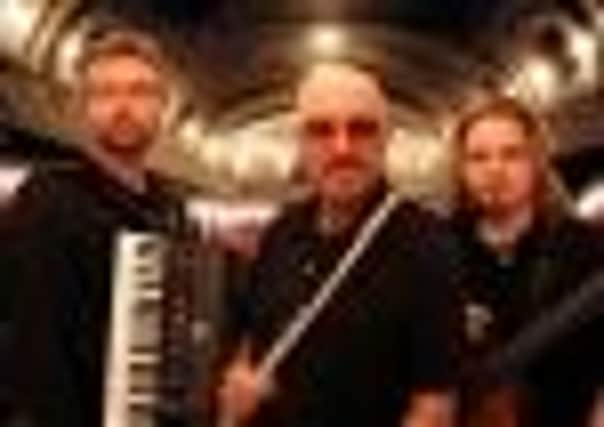Man who made the flute rock blows in to town


IN rock music’s pantheon certain instruments are inextricably linked to certain people. Think of the great guitar heroes and the likes of Jimi Hendrix, Eric Clapton and Jimmy Page jump instantly to mind.
Similarly, you couldn’t have a serious conversation about legendary drummers without mentioning Keith Moon or John Bonham. But when it comes to the flute, one man has become synonymous with it more than any other – Ian Anderson.
Advertisement
Hide AdAdvertisement
Hide AdAs the frontman and founding member of Jethro Tull, Anderson’s musical odyssey stretches back more than 40 years, during which time he has played more than 2,500 gigs in 40 different countries.
He draws on a deep well of musical inspiration from blues and jazz, to folk and classical music, and helped to pave the way for the “prog rock” phenomenon in the ’70s (nobody’s perfect.)
Having sold an astonishing 60 million records with Jethro Tull, Anderson continues to make music, and this month begins a solo acoustic tour that takes in York’s Grand Opera House. “I’ve done this kind of thing for a long time in the United States and I thought it would be nice to do something similar for fans over here, and to make them feel like they are in my living room for an impromptu family concert,” he says.
Playing an acoustic set is second nature to him. “I’ve been the unplugged guy in a rock band for the past 43 years and if you think about it, the rock genre has an interface with all kinds of different music. A lot of the songs I have written started out in a hotel bedroom in the middle of nowhere with me strumming a guitar.”
Advertisement
Hide AdAdvertisement
Hide AdAnderson has become known for his wild-eyed stare and for playing the flute while standing on one leg, but such histrionics are at odds with his thoughtful and articulate off-stage persona.
Born in Dunfermline, in postwar Scotland, his interest in music was awakened – as was the case with so many of his generation – by Elvis Presley and the advent of rock ‘n’ roll.
“I wasn’t a huge Elvis fan, but when I heard Blue Suede Shoes it felt like something else was going on and I had the idea that music could be more interesting, more fun.” After leaving art school to concentrate on music, he moved to London during the Summer of Love and co-founded Jethro Tull.
He started out as a guitarist and only started playing the flute after watching Eric Clapton. “I couldn’t believe how good he was and I realised I would never be that good even if I played for a hundred years. I’d also heard rumours about Jeff Beck and Ritchie Blackmore and on a complete whim, I turned to the flute.”
Advertisement
Hide AdAdvertisement
Hide AdBut initially he couldn’t even play the instrument. “After a couple of months I could barely make a sound and put it back in its box. But I started playing the tin whistle and harmonica and eventually made a connection with the flute. I had no idea how to play a flute so I created my own finger style and played it like a guitar.” It gave the band a unique selling point and became Anderson’s calling card.
Although Jethro Tull reached their commercial peak in the early ’70s with albums like Aqualung and Thick As A Brick, their fanbase today doesn’t only consist of ageing hippies. “The music has crossed over into a third generation because I see teenagers at our gigs who simply weren’t alive when we started.
“There’s always been an eclectic mix and a broad palette of musical elements and thankfully enough people have listened rather than walking away. I can’t please all the people all the time but hopefully I can please most of the people a quarter of the time,” he says. “I’m a restless and complicated soul and I find the exploration of music endlessly fascinating,” he says, explaining his need to play with new musical ideas.
“Some are born to wield a pen in the hope of matching the great works of Shakespeare, others are born to tap a keyboard as an office accountant. There’s something preordained about it all which I quite like and for me it was music.”
Advertisement
Hide AdAdvertisement
Hide AdIan Anderson plays the Grand Opera House, York, September 20. Tickets 0844 847 2322 or visit www.grandoperahouseyork. org.uk
Best flute forward: Jethro Tull’s Ian Anderson
Ian Anderson was born in Dunfermline, Scotland, in 1947.
Jethro Tull was formed in London in 1967 and played the famous Marquee Club in February the following year.
Anderson began playing the flute after watching Eric Clapton playing guitar: “I realised I would never be that good even if I practised for a hundred years.”
The band has sold more than 60 million albums worldwide.
Anderson’s eclectic hobbies include growing hot chilli peppers, the study and conservation of small wildcats and vintage cameras.